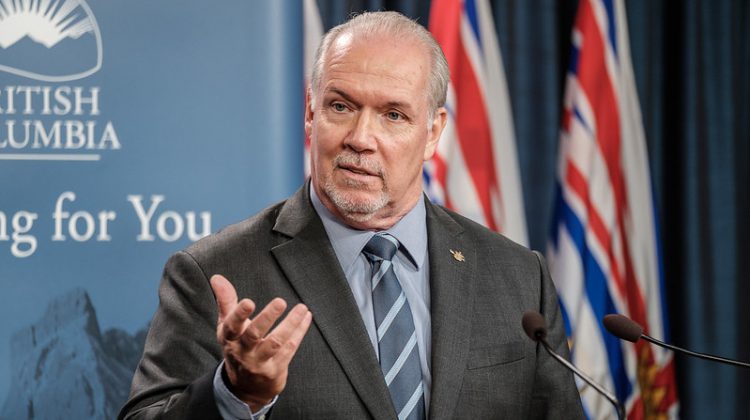(Files by Brendan Pawliw-MyPGNow)
A new framework has been launched by the government to assist those living in rural, remote and indigenous communities to better respond to COVID-19.
Premier John Horgan said this provides more flexibility and improvements to health care services.
“The framework includes more medical transportation options, which includes planes, helicopters, and 55 new ambulances to bring people from remote communities into urban centres so that they can get the health care they need.”
“People in rural, remote and indigenous communities won’t have to worry about how they get there anymore and that will relieve some of the burdens emotionally and financially.”
Horgan adds the framework also includes self-isolation close to hospitals and faster coronavirus testing methods.
The framework also outlines immediate actions including:
* housing options for people looking to self-isolate near their families while remaining in their home communities;
* new and faster COVID-19 testing technology;
* culturally safe contact tracing that respects privacy in small communities;
* Access to Virtual Doctor of the Day, a program that connects First Nations members and their families in remote communities to a doctor or nurse practitioner using videoconferencing;
* options for accommodation near larger centers with more medical services; and
* increased mental-health supports in communities.
The faster testing methods underway include GeneXpert test kits, which take less than 45 minutes to complete.
A number of instruments are in B.C. and are being used in all five provincial health authorities including Northern Health.
“Indigenous communities have been harder hit in past pandemics and are vulnerable to COVID-19. Elders in particular, as critical knowledge keepers and holders of language, culture, and teachings, must be protected,” said Scott Fraser, Minister of Indigenous Relations and Reconciliation. “Having plans and supports tailored to the unique circumstances and challenges in remote Indigenous communities will support these communities in caring for their residents.
“Northern Health is encouraged that the unique issues and challenges that rural and remote communities face have been acknowledged in this way by the Government of B.C. This framework will be very helpful in guiding the partnered work Northern Health is doing in collaboration with the First Nations Health Authority and BC Emergency Health Services in response to the COVID-19 pandemic,” said Colleen Nyce, board chair, Northern Health in a news release.
According to the province, there are more than 200 distinct First Nations in B.C.
Something going on in the Cariboo you think people should know about?
Send us a news tip by emailing [email protected].








